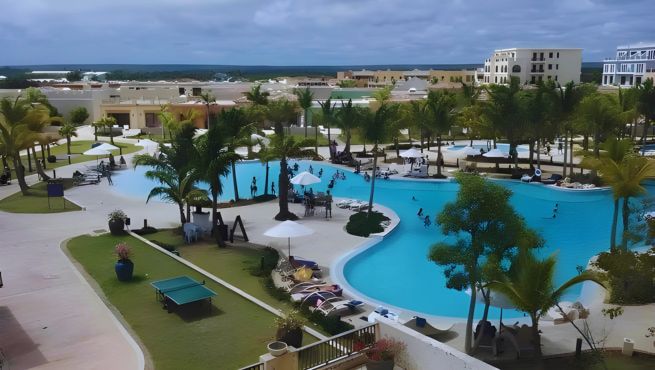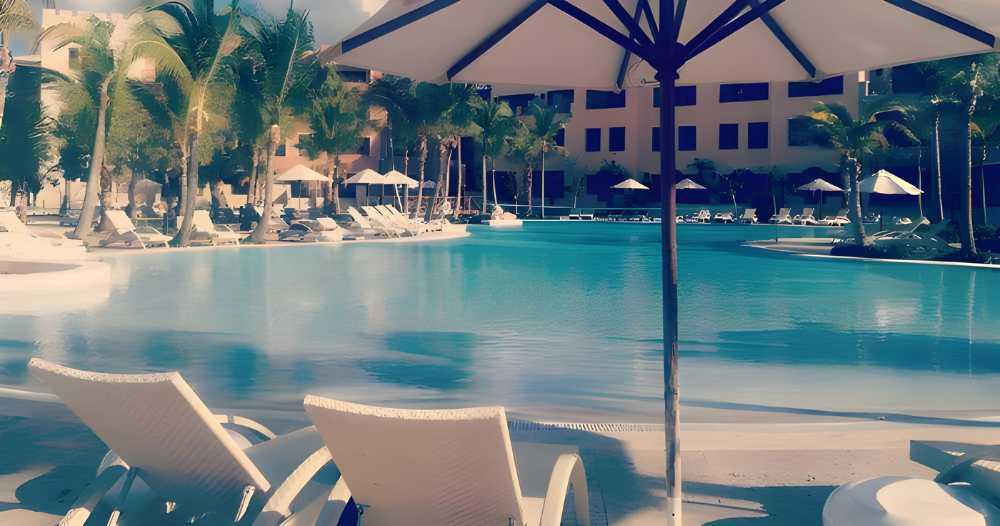A Complete Guide
In this article, we will delve into the fascinating world of real estate purchasing in the Dominican Republic. We will guide you through each step of the process, ensuring that you have all the necessary knowledge to make a smart and safe investment.
Why Invest in the Dominican Republic?
The Dominican Republic is not only known for its beautiful beaches and tropical climate, but also as an attractive destination for real estate investors. The economic stability, coupled with consistent tourism growth, makes this location perfect for investing in real estate. One of its most renowned areas is Punta Cana, attractive for various reasons both for real estate investors and for those looking for a place to personally enjoy their investment. Here are some of the main reasons why Punta Cana stands out as an investment destination:



- Tourism Boom: Punta Cana is one of the most popular tourist destinations in the Caribbean, attracting millions of visitors each year due to its stunning white sand beaches and crystal-clear waters. This constant influx of tourists ensures that your investment in vacation rental properties is profitable.
- Constant Development: The infrastructure in Punta Cana is continually growing and improving, including airports, roads, hospitals, and shopping centers. This not only enhances the quality of life in the area but also increases the value of real estate.
- Return on Investment: Due to its popularity as a tourist destination, properties in Punta Cana can offer an attractive return on investment through vacation rentals. Moreover, the real estate market has shown sustained growth in property value appreciation.
- International Environment: Punta Cana is home to a diverse and international community, creating a welcoming atmosphere for expatriates and investors from around the world. This diversity also drives a rich variety of services and cultural activities.
- Tax Incentives: The Dominican Republic offers attractive tax incentives for foreign investors, including property tax exemptions and tax benefits for tourism developments, which can significantly enhance the profitability of real estate investments.
- Lifestyle: Beyond investment, Punta Cana offers a relaxed lifestyle with access to numerous leisure activities such as golf, sailing, diving, and fishing, among others. This makes it not only a place to invest but also to enjoy.
The Dominican Real Estate Market

The real estate market in the Dominican Republic offers a wide range of properties, from luxurious villas to affordable apartments, appealing to both high-end buyers and those on a more limited budget.
Specifically, Punta Cana offers an impressive variety of opportunities for investors and buyers looking for everything from luxurious resorts to comfortable homes for retirement or vacation. Here are some of the options you can find and the advantages of investing in this vibrant Caribbean area:
- Luxury Villas: : Located in exclusive complexes with access to private beaches, 24-hour security, and first-class amenities such as golf courses and yacht clubs.
- Apartments and Condominiums: Ideal for investors looking for more affordable properties, with options ranging from studios to multi-bedroom apartments, many of which offer stunning sea views and access to pools and other facilities.
- Commercial Properties: Including spaces for shops, restaurants, or small hotels, which is ideal given the high tourist traffic in the area.
Understanding Real Estate Laws
Legal Requirements for Purchasing
Before starting the purchase process, it is essential to understand the legal requirements. Here we explain everything you need to know about contracts, property titles, and more.
Purchase Contract
The purchase contract is crucial in the property acquisition process. It is the document that formalizes the agreement between the buyer and the seller and specifies the terms of the sale.
Property Title
The property title is the document that certifies ownership of the property. It is essential to ensure that the title is free from liens or disputes before proceeding with the purchase.
Taxes and Additional Costs
Property Tax
Property tax in the Dominican Republic is relatively low compared to other countries. However, it is important to consider this cost when calculating the total budget. This tax is particularly relevant for those who own or are considering buying properties in the country.
- Properties owned by individuals are subject to the Property Tax (IPI) at an annual rate of 1%, calculated on the total value assessed by government authorities.
- Property tax can be paid in one installment or split into two semi-annual installments.
- Knowing the amount of property tax can help buyers calculate the total cost of maintaining the property.
Other Expenses
Other expenses to consider include attorney fees, registration costs, and possible transfer taxes, which may vary depending on the property.
Steps to Buy a Property
- Define your needs and budget.
- Property Search
- Research the different areas and types of properties available.
- Consider proximity to essential services such as hospitals, schools, and shopping centers.
Property Evaluation:
Before making an offer, it is crucial to thoroughly evaluate the property. This includes checking the physical structure, available services, and the legality of the property title.
Avoiding Real Estate Fraud

Make sure that the title they provide you is for the property in question. I have had experiences where I received documents for a different property than the one being purchased. On another occasion, they were "selling" more land than what the title stated. They physically indicated where the property ended, but part of the land they intended to sell belonged to the neighbor. This can be verified by consulting the Title Registry or through a specialized lawyer.
- Use accredited professional services: Always work with licensed real estate agents, lawyers, and notaries with a good reputation. Verify their credentials and seek references or reviews from other clients.
Be wary of any "professional" who says yes to everything, even though these professionals are there to make your life easier. They should always explain the downsides, such as taxes, fees, maintenance costs, and even area traffic if necessary. Unfortunately, I met a couple of foreigners who were victims of real estate fraud, and one of the characteristics they mentioned both the "lawyer" and the "real estate agent" had was that to gain their trust, they said yes to everything, assuring them that everything would be perfect, etc.
- Complete due diligence: Conduct a thorough investigation (due diligence) before proceeding with any purchase. This includes verifying the legality of the title, the physical existence of the property, and compliance with all urban and environmental regulations.
- Do not pay money upfront without guarantees: Avoid making significant payments or deposits without the proper formalization of a purchase and sale contract and without ensuring that all terms of the agreement are clear and legal.
- Hire a specialized real estate lawyer: A specialized lawyer can provide you with appropriate legal advice, help you navigate the Dominican legal system, and ensure that all transactions are conducted according to the law. Don't forget to verify their credentials and reputation.
- Inspect the property personally: Visit the property personally or make sure that someone trustworthy can verify that the property exists and is in the agreed-upon conditions.
- Beware of offers that are too good to be true: Be wary of remarkably low prices or exceptionally favorable conditions without a clear reason. These could be warning signs of potential fraud.
- Verify the seller's identity: Confirm that the person or company selling the property is really who they claim to be and that they have the legal authority to sell the property.
- Keep detailed documentation of all transactions: Keep copies of all documents, emails, and communications related to the transaction. This documentation can be crucial in the event of legal disputes.
- Buy through a bank: Even if you have the funds to buy the property you want, if it is within your means, buy through a bank, as most people do not know the process or where to verify all the information, but the bank does. If the bank is going to make a loan, it will not risk losing its money. And you can make a safe purchase.
Price Negotiation
Negotiation is a crucial component in the process of acquiring real estate. Having a deep understanding of the real estate market positions you favorably to negotiate a better price. It is vital to thoroughly research the different areas of Punta Cana, as well as average prices, since some areas may be more expensive due to their features and location.
Keep in mind that, although the seller may initially propose a high price, with a solid understanding of current values in the region, you will have a greater negotiating power to ensure a purchase at the best possible price.
Conclusion
Buying a property in the Dominican Republic can be an excellent investment. By following this guide, you will be one step closer to making a successful and safe purchase.
Frequently Asked Questions (FAQ)
- Do I need to be a resident to buy a property in the Dominican Republic?
No, you do not need to be a resident to buy property here, although certain processes may be simpler for residents.
- ¿Cuál es la Ley de inversión extranjera en la República Dominicana?
La Ley 16-95 sobre Inversión Extranjera, promulgada el 20 de noviembre de 1995, establece claramente que la inversión extranjera es crucial para el desarrollo y crecimiento económico de la República Dominicana.
- What are the main benefits of investing in real estate in the Dominican Republic?
The main benefits include the potential for property appreciation, rental income, and tax benefits.
- What should I do if there are disputes over the property title?
It is crucial to resolve any disputes before proceeding with the purchase, preferably with the help of a specialized real estate lawyer.
- How can I make sure that the property I want to buy is legal?
You should verify that the property title is registered and free from liens in the Title Registry.
- Are there areas in the Dominican Republic more conducive to real estate investment?
Tourist areas such as Punta Cana and Santo Domingo are highly recommended due to their high demand and resale value.











